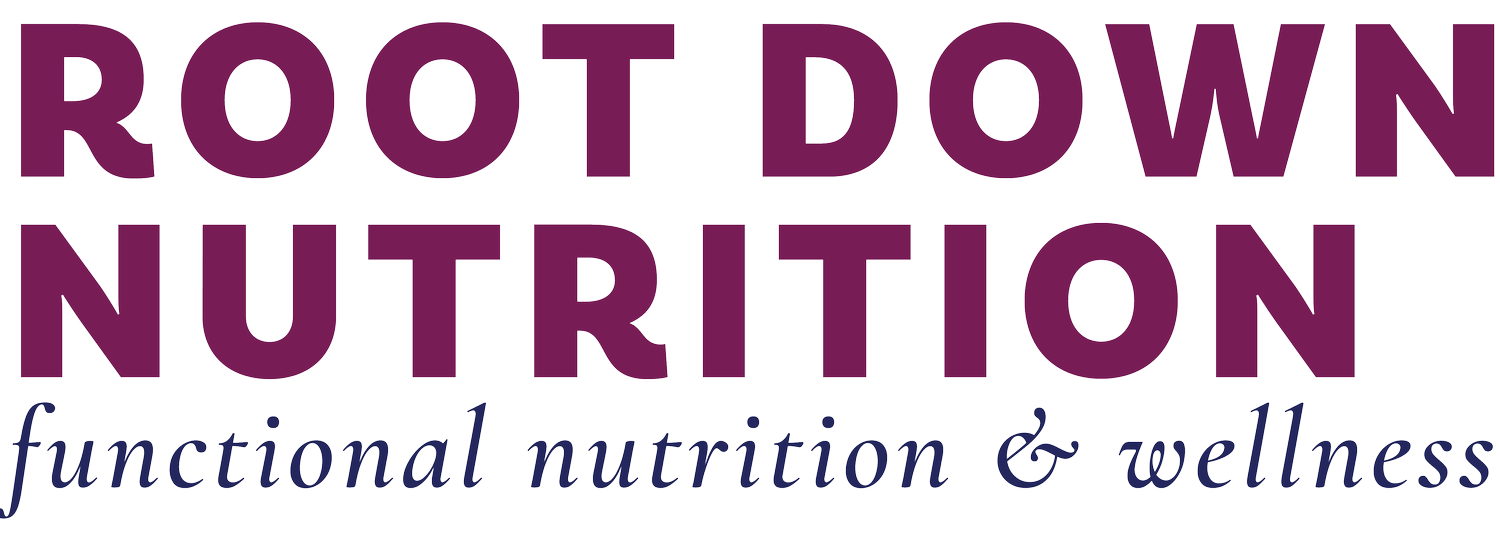Small Intestinal Bacterial Overgrowth (SIBO)
Small intestinal bacterial overgrowth (SIBO) is a chronic intestinal disorder where an abnormally large number of bacteria are found in the small intestine. SIBO can lead to intestinal inflammation, poor digestion and absorption, and leaky gut.
Almost 80% of Irritable Bowel Syndrome (IBS) cases are actually SIBO! This is so important if you’ve ever been told that you “just have to live with IBS”. SIBO is a condition that, with the right approach, is treatable and not just something you have to live with.
Symptoms of SIBO can vary from person to person and often overlap with other conditions which can make it difficult to recognize and diagnose if you’re not well-trained in SIBO.
SIBO symptoms can include:
Constipation
Fatigue
Excessive gas or belching
Nausea
Nutrient deficiencies
Abdominal bloating
Abdominal discomfort
Chronic loose stools
Heartburn
Intolerance to fiber, prebiotics, probiotics or FODMAPs
SIBO impacts your ability to properly digest and absorb carbohydrates, protein and fat which can lead to deficiencies in vitamins B12, A, D, E, K, iron, thiamine and niacin.
SIBO is associated with non-digestive symptoms and is often found in conditions like:
Fibromyalgia
Hypothyroidism
Celiac disease
Migraines
Anxiety/depression
Nausea
Inflammatory Bowel Disease (IBD)
Functional GI and motility disorders (like IBS and gastroparesis)
Anemia
Bladder pain
Osteoporosis
Restless leg syndrome
Rosacea, eczema, psoriasis
Acne
Steatorrhea (fatty stools)
Weight loss
Joint pain
Causes & Risk Factors
Any disturbance in the body’s ability to regulate the bacteria in our gut microbiome can contribute to SIBO. Two common causes of SIBO that we see often are digestive insufficiencies and impaired motility. When you don’t produce enough stomach acid, digestive enzymes or bile, it causes undigested food to ferment in the gut and overfeed bacteria. This can lead to symptoms like gas, bloating, diarrhea or constipation. When you have impaired motility, food isn’t moving through the small intestine like it should, which leads to a buildup of bacteria in the small intestine, where it doesn’t belong.
Factors that have been shown to influence the development of SIBO include:
Low stomach acid
Hypothyroid
Motility disorder (gastroparesis, scleroderma, Muscular Dystrophy, Parkinson’s
Chronic NSAID, opioid, PPI or antibiotic use
Steroids, immunosuppressants or immunosuppressive therapy
Vagotomy (surgery that affects or removes part of the vagus nerve)
Intestinal surgery or bowel resection
Fistula
Small intestine obstruction, adhesion or stricture
Food poisoning
Ehlers-Danlos Syndrome
Traumatic brain injury (TBI)
Diabetes
Older age
Chronic pancreatitis
Liver dysfunction (cirrhosis, hepatitis, NAFLD, etc)
Next steps for addressing SIBO
Find a practitioner who will take a functional medicine approach to gut health and SIBO and be a supportive co-pilot on your gut healing journey. Hint: you should feel excited about working with them! Remember, you get to pick your healthcare team.
Schedule an initial session to do a deep dive into your health history, symptom timeline, diet and lifestyle. Hint: this takes a heck of a lot longer than the average 8 minute visit with your primary care doctor every year.
Complete the necessary testing to personalize your treatment and identify your unique root-causes. Hint: we recommend a functional stool test, 3-hour SIBO breath test, and comprehensive blood work panel (testing is included in our 1:1 program!)
Follow a personalized protocol that focuses on rebalancing your gut bacteria, supporting digestion, repairing the gut lining, and correcting nutrient deficiencies. Hint: when you heal your gut you’ll also see improvements in your skin, hormones, metabolism, energy, and more!
Make the necessary diet and lifestyle changes to support your healing and address the root causes of imbalances. Hint: a low-FODMAP diet does not cure SIBO.
Prevent SIBO relapse by following a strategic maintenance plan that keeps the gut healthy. Hint: without a thorough maintenance plan, SIBO relapse can happen in under 3 months.
If this sounds like something you might be struggling with and you’re ready to work with a gut specialist, apply for a free discovery session to learn more about how we’ll get to the root of your digestive issues to create your personalized gut healing plan.
About Kyle
Kyle Maiorana is a functional medicine Registered Dietitian Nutritionist and real food advocate who takes a whole-person, root-cause, evidence-based approach to wellness. She works with clients to eliminate gut symptoms for good.


